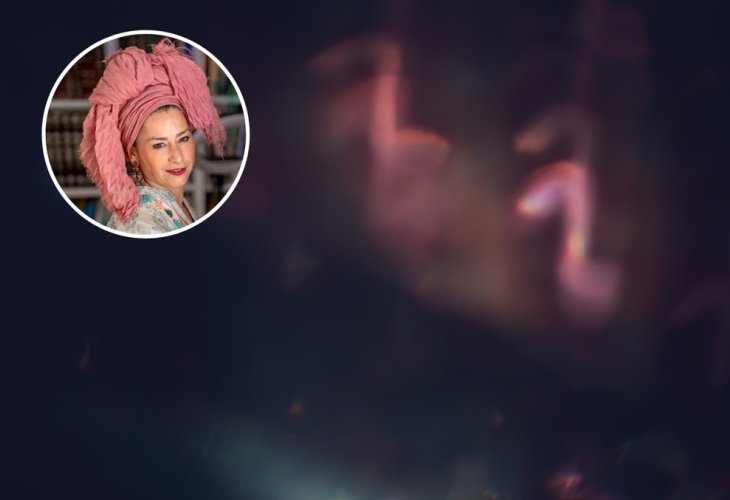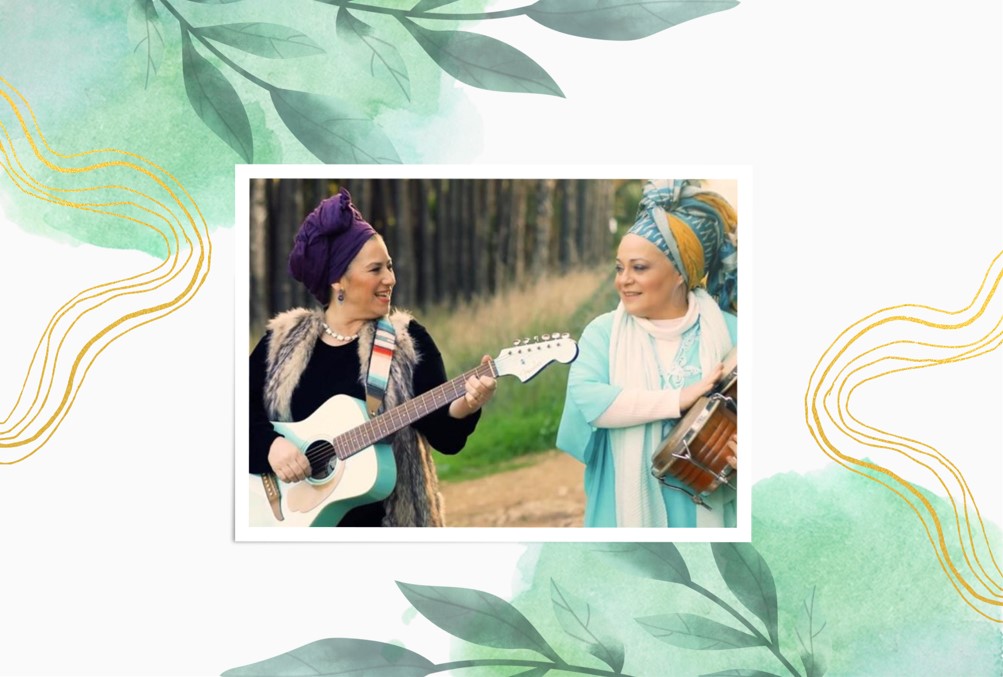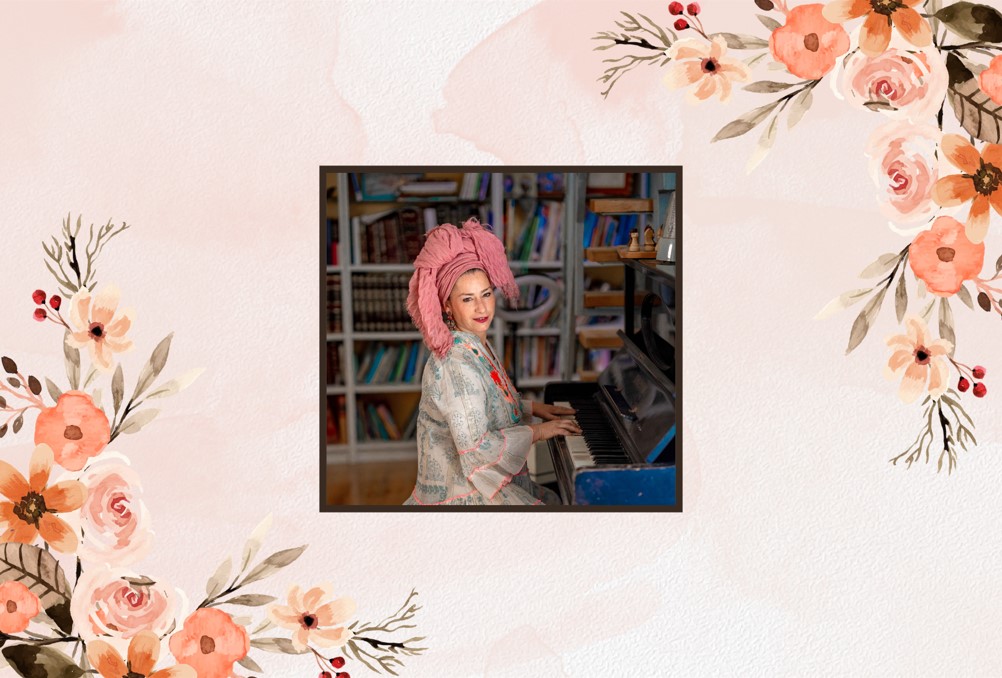"We Went Through a Crisis, Only Now Can I Talk About It": Rika Rezell in an Exclusive Interview
In the past year, creator Rika Rezell experienced a tumultuous crisis. Now, she shares her story for the first time, discussing the many blessings that emerged from it.
 (Credit: Ethan van Loan)
(Credit: Ethan van Loan)The past year was not easy for Rika Rezell, an artist in her own right and sister to Yonatan and Aharon Rezell. Until now, she hadn’t spoken publicly about the matter, but in an interview with the Hidabroot website, she reveals the sensitive issue for the first time.
Light Within the Darkness
"For several years we've had a restaurant in the Mahane Yehuda market in Jerusalem called 'Crave'. *Baruch Hashem*, it's a successful restaurant we set up in partnership with friends who have been like family for over 30 years.
"The children grew up together, the relationship was very strong, and we spent many Shabbatot and festivals together. But friendship isn't simple, especially when it involves a large business. About a year ago, the relationship hit a snag, and a process began that dismantled our friendship and partnership. We tried to make peace but didn't succeed, and realized we couldn't remain partners, so someone had to leave the restaurant. Eventually, after a year-long process, we bought their share and moved on."
I presume beyond the difficulty of ending the friendship, the business also faced turmoil due to the conflict.
"Definitely. It was very difficult both personally and emotionally because two families that were deeply connected suddenly separated, and we had to hire and train new staff quickly. You need to understand that this isn't just a business for us; it's really part of our home. Beyond my husband being deeply involved, my daughter Michal manages the restaurant, and my other daughters work there too. This happened around Passover last year, and when it did, I realized I needed to shift my focus from music to supporting the business. I simply started doing whatever was required, even working as a waitress. Everything happened very quickly, it was completely unexpected, and I felt like the sky was falling on me and didn’t know what to do.
"Alongside this, some very positive things happened because of what we went through. My husband and I always wanted to work together; it was my dream because my best partner, who genuinely has my best interests at heart, is my husband, and that finally happened. Before they left, I wasn't so involved in the business, just from a distance. When the crisis occurred, I knew I needed to stick close to my husband, and as long as we stayed strong together, everything would be okay. Moreover, today I can say that within the great darkness, a lot of good emerged. During this tough period, I felt how Hashem was with me, walking hand in hand, helping me and ultimately wanting the best for me.
"Additionally, as a result of what happened, my faith in Hashem greatly strengthened, and I began studying more Torah. Torah refreshes the soul, and it's done wonders for my spirit. For a long time, I've hosted a weekly Torah class in my home with Rabbi Halper, an amazing woman from whom I've learned so much, like studying in-depth about the mitzvah of lighting Shabbat candles, a mitzvah particularly commanded to women. She revealed to me that it's not just a technical practice but a deeply significant one. We learned that a woman must light the candle in her home, to bring light, joy, and illuminate the dark corners. Recently, we saw this, for example, with the incredible women from the Peli and Yaniv families who brought such great light out of the darkness imposed upon them."
Speaking of light and darkness, you recently released a new song with Din Din Aviv, "Tell Me, Father," which I assume is also related to what happened with the restaurant.
"When you release a song, you don't necessarily tie it to specific experiences, but sometimes you suddenly realize. That’s also what happened with this song. I sought strength and faith, and tried to thank for the bad along with the good, and then this song came. Besides, I've wanted to collaborate with Din Din for a long time because I really love her, and finally, it happened. We met at a women's creators' conference to promote women's only concerts, just days before I wrote the song. I suggested she sing it with me, and she agreed.
 Screenshot from 'Tell Me, Father' music video
Screenshot from 'Tell Me, Father' music video"Although I went through a very tough year, I understood that just as Joseph the Righteous told his brothers that Hashem orchestrates events for the good, so it is with everything. I realized that a person is judged by how they handle unexpected challenges. I learned that one must grow from every difficulty, and try to understand what good you can bring into the world because of what happened. Sometimes you grasp it relatively quickly, and sometimes only after time has passed, do you understand why things happened, or hardly understand it at all.
"Overall, the whole song is filled with matters of divine providence. For instance, a few days after writing it, I visited my friend Orly Dayan up north and told her I wrote a new song and wanted to record it properly. I didn't know she was married to Hod Dayan, a talented musician with a recording studio, and suddenly she said, 'My husband has a studio here, let's do it now.' A meeting supposed to be brief turned into a much longer affair, during which I even managed to visit the grave of Rabbi Shimon bar Yochai and return. Toward the end of the day, I also learned that Orly and Din Din were good friends, and everything came together."
A Long Journey of Closeness
Speaking of connections, Rezell has been creating and singing for many years, blending many diverse worlds in her creations. "The process of musical creation is one of the most amazing things there is, and one of the things I love to do the most. Sometimes the words and melody just come to me, and sometimes I have to work harder to receive them. It's a great wonder. I have a studio in our backyard, and I often sit there at the piano, sometimes to practice and sometimes to create, and that’s where things usually happen. And sometimes they don't. In those moments, I might suddenly go with something arising within me, something I heard in a class or a sentence someone said to me, and quite quickly I can feel whether it's good or not.

"Of course, in relation to my music, I must also mention my brothers Yonatan and Aharon, who are an important part of it. We grew up very closely; we were born a year apart one after another, and from a young age we've made and still make a lot of music together. We play songs from different periods and styles, they help me immensely in my career, and I feel privileged to be their sister. It teaches me a lot about humility and modesty. At the end of my performances, sometimes women approach me and say, 'I have to tell you something,' and I wait for some compliment about my performance, but they say, 'Listen, I want to tell you I really love your brother's songs.’ When this happens, I tell myself, 'Right, how lucky I am to be their sister,' and we really support each other. *Baruch Hashem*, I'm a mother of eight and have long been a grandmother, and I know well the great importance of family."
That said, how much does it bother you, the feeling you'd like to succeed more? And do you think this is related to your choice to perform only for women?
"I can't say it's easy for me, but with maturity comes a certain calm about success. Suddenly you understand you don't have to perform in front of 30,000 people to feel successful. Even a text message in the morning after a performance from a woman who decided to make a life change because of the show, or who got inspiration or encouragement in various ways, is also great success and brings me much joy. I'm always on a long journey of drawing close to Hashem, and music is a big part of that. As I delve deeper into Torah, I discover the treasure we have, a treasure that can bring so much good into our lives.
"However, I also face many challenges in adhering to halacha. The Torah prohibits me from performing in front of men, which is not simple and complicates success and other aspects of music. For example, we fight for the right to perform only in front of women. Venues that receive government funding don't allow women-only performances, which makes it very difficult for us, the women who stick to this. For instance, my daughter Hallel wants to advance in music, and she's in a very big dilemma about it because this halacha is very hard to implement. Music goes well with a lot of freedom and flow, and when it's restricted, it's tough.
"But at the same time, once you understand that Hashem wants your best interest in everything, it becomes easier. You manage more to distinguish between the trivial and the main thing. As the years go by, I see more and more how amazing it is to perform only for women. When I am an artist or part of the audience at women's only events, I feel joy, freedom, simplicity, and peace that cannot be achieved at mixed events. It's amazing to see that Hashem, who created us, knows best what's truly right for us, and how He repeatedly guides us to the most amazing things we could imagine."

